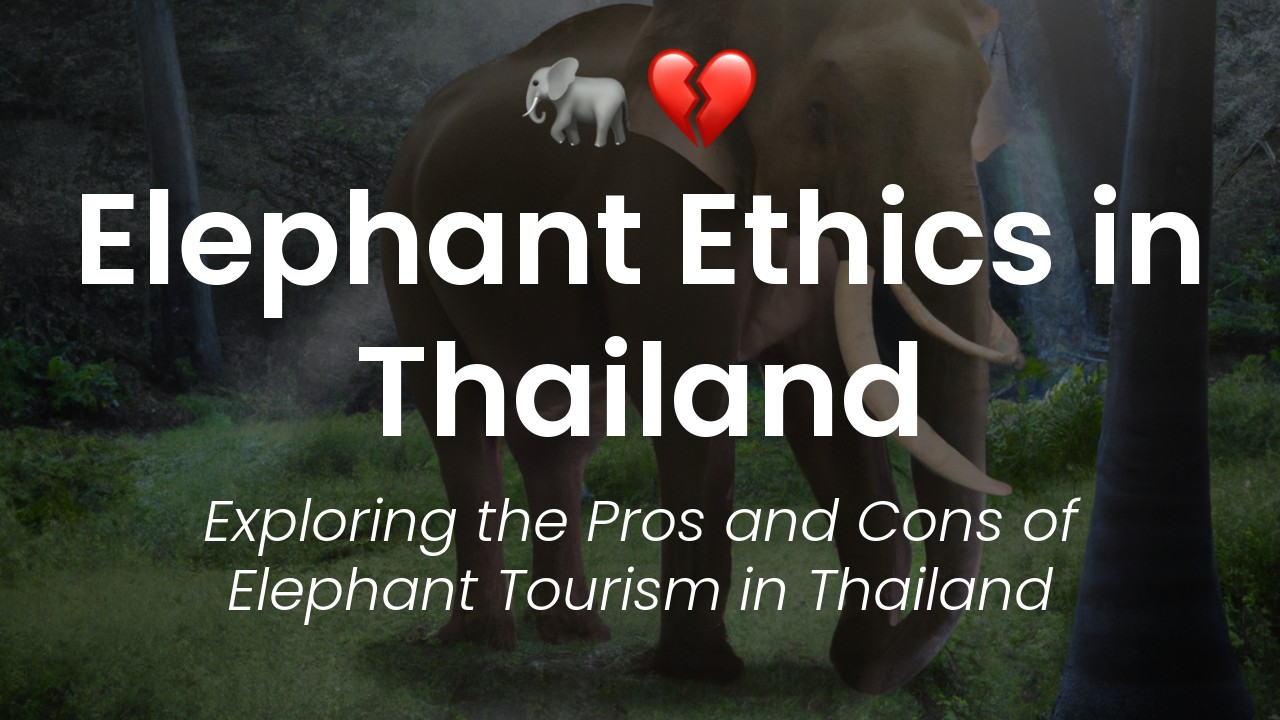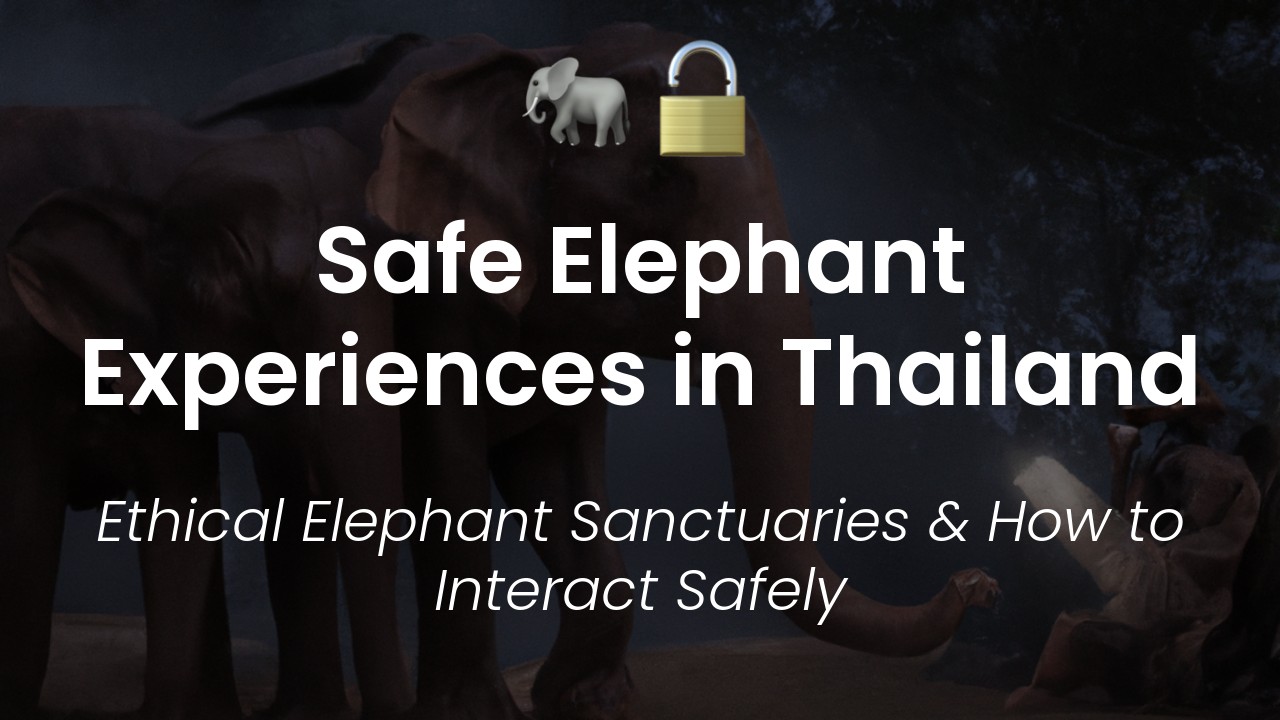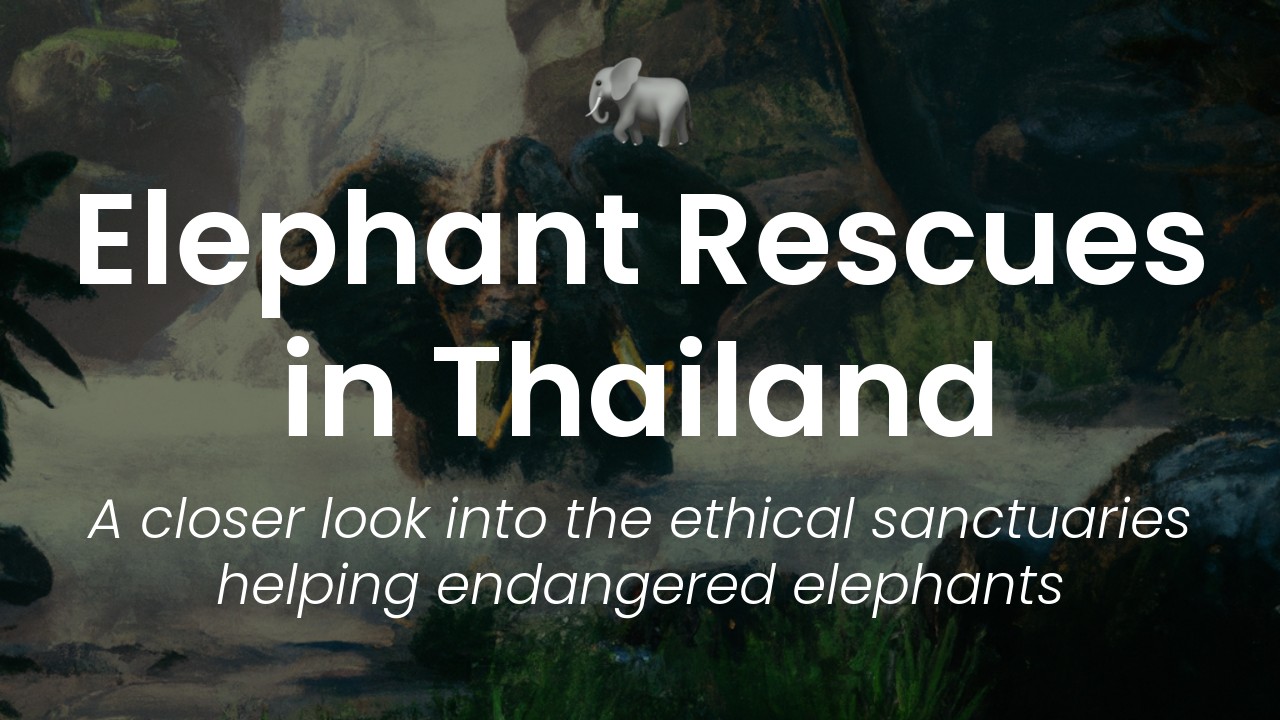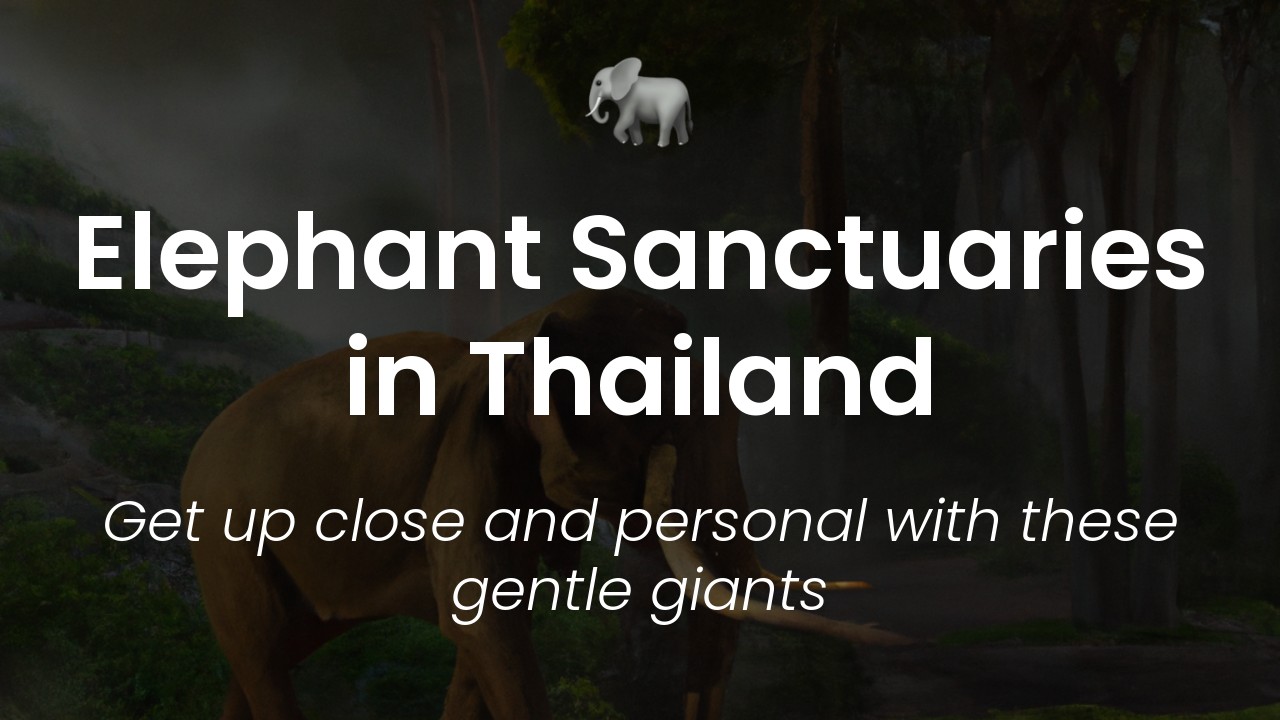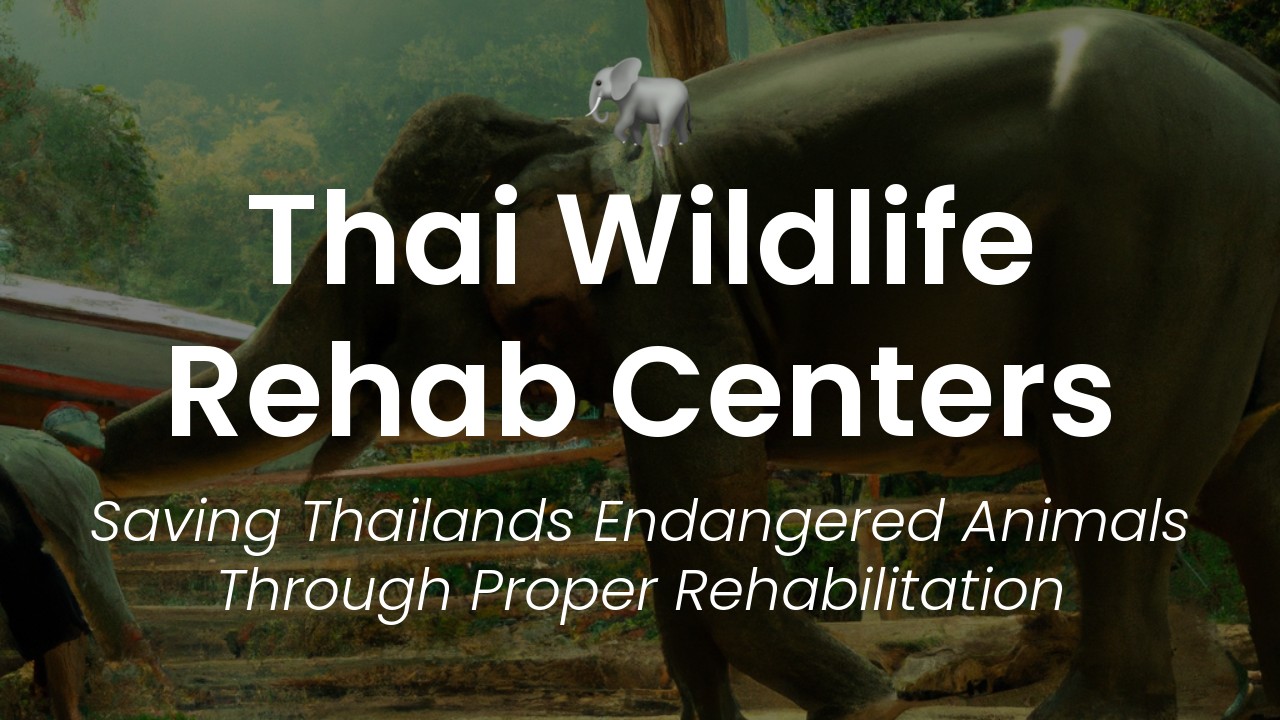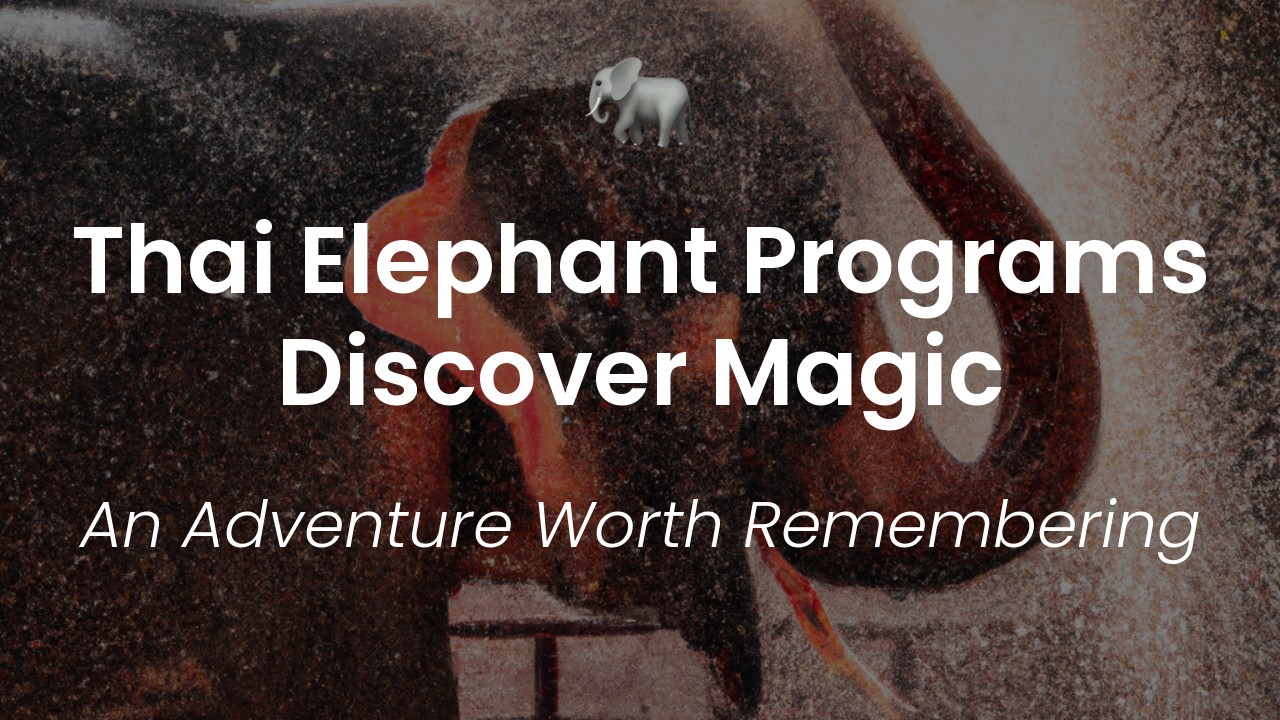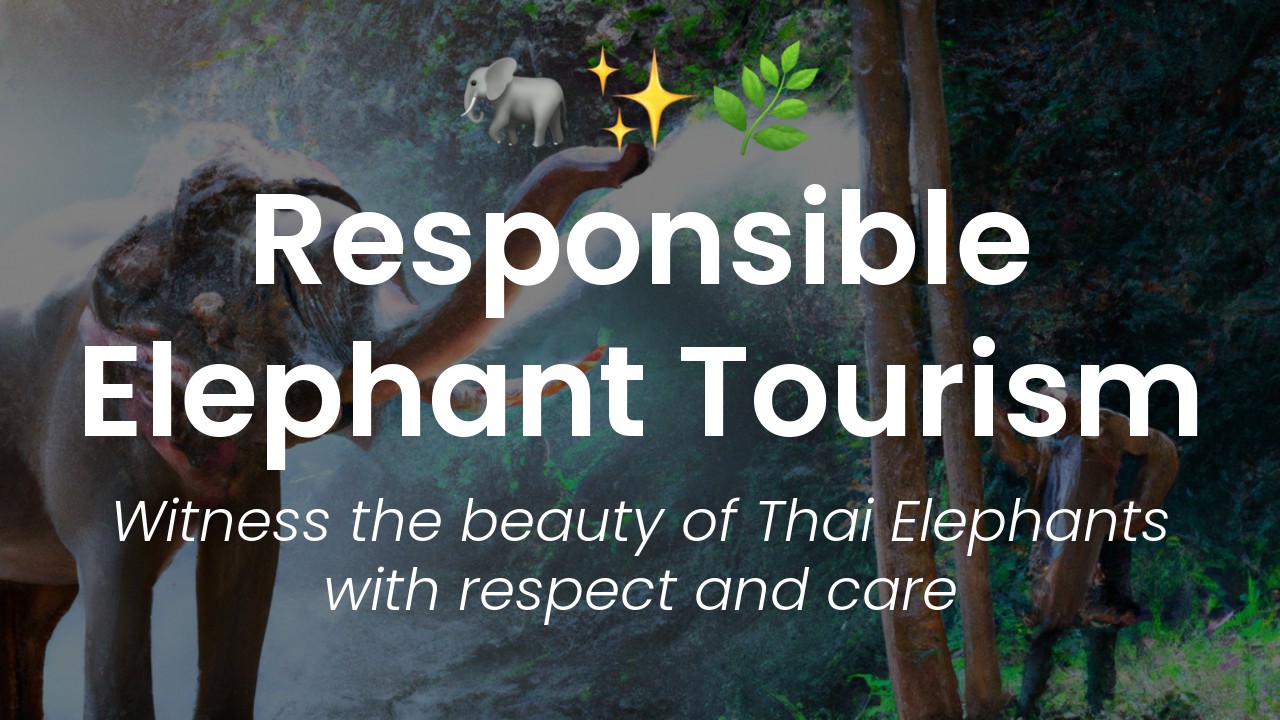Elephants in Thailand
As someone who was born and raised in Thailand, I have always been surrounded by elephants. In my culture, elephants are revered as sacred creatures, with a long history of serving as work animals, transportation, and even soldiers in ancient warfare. However, with the rise of tourism in my country, elephants have taken on a new role – as entertainment for tourists.
Elephant riding, feeding, and bathing experiences are now some of the most popular activities offered to tourists in Thailand, especially in places like Chiang Mai and Phuket. Unfortunately, the huge demand for these experiences has led to the exploitation and mistreatment of elephants, as some tour operators seek to profit from their exploitation.
As a passionate advocate of ethical tourism and animal welfare, I believe that it's essential for tourists to educate themselves on the issue of elephant tourism in Thailand. In this article, I'll be delving deep into the topic, examining the history of elephant tourism in Thailand, the animal welfare concerns of elephant rides, and the rise of elephant sanctuaries as a more responsible alternative for tourists who want to observe these majestic creatures.
Elephants in Thailand's Tourism Industry
As a Thai citizen, I'm sure you're aware that elephants are an integral part of our culture. In ancient times, they were a symbol of power and wealth for the ruling class. Nowadays, they attract tourists from all over the world to Thailand.
Elephants in Thai tourism have been a hot topic for decades. There is a growing movement of tourists who want to see and interact with elephants, but who also want to ensure they are doing it ethically. Unfortunately, not everything is what it seems in the world of elephant tourism, leading to some elephants suffering severe abuse.
Abusive Practices Against Elephants
Elephant tourism involves different activities, such as elephant riding, bathing, and trekking. While many elephants used in these activities may seem to be healthy and happy, the reality is that they have experienced significant abuses behind the scenes. Some elephants have been subjected to brutal beatings or "phajaan" in which they are separated from their mothers and trained to become obedient by using fear and violence.
Owners of unethical elephant camps may also use harmful practices, such as chaining up elephants for long hours, depriving them of food and water, and keeping them in small, dirty enclosures. Such abuse can cause immense physical and psychological stress to the animals, leading to long-term health problems.
Responsible Elephant Sanctuaries
Fortunately, there are responsible elephant sanctuaries in Thailand that uphold humane treatment of elephants. These sanctuaries allow visitors to interact with elephants in their natural habitats without compromising the animals' welfare. Elephants are allowed to roam freely, socialize with other elephants, and exhibit their natural behavior, such as bathing in rivers.
Additionally, responsible sanctuaries prioritize elephant health and care by providing proper nutrition, medical care, and enrichment activities. These sanctuaries also employ skilled mahouts who use positive reinforcement techniques to train elephants and build trustful relationships with them.
How to Identify Ethical Elephant Tourism
Visiting ethical elephant tourism is a great way to see and appreciate these magnificent animals without participating in cruel actions. But how can you identify which of these camps are truly ethical?
Here are some signs of an ethical elephant sanctuary:
-
#1 No riding: Ethical sanctuaries do not allow elephant riding, as it can hurt their backs and spines.
-
#2 No hooks or instruments: No use of painful tools such as ropes or hooks.
-
#3 Free-roaming: Ethical sanctuaries let elephants roam, bathe, and graze without forcing them into specific activities.
-
#4 Positive reinforcement: Ethical sanctuaries are adept at using positive reinforcement, providing care, and support for their animals.
-
#5 Locally run: Ethical sanctuaries usually operated by locals or nonprofit organizations.
Sustainable Alternatives to Riding Elephants
Elephant riding is one of the most common elephant tourism activities in Thailand, but it's also one of the most unethical. When you visit Thailand, you can always consider other alternatives to interact with elephants without damaging their well-being.
Elephant feeding is one of the best humane ways to show your love and appreciation and understand elephant behavior. It allows visitors to feed elephants with fruits and vegetables while observing their natural behavior.
Elephant bathing is another humane way to experience elephant tourism, allowing visitors to see elephants enjoying their natural habitat. One can also participate in activities such as walking and playing with elephants in safe activities that do not harm their health.
Supportive Practices for Elephant Conservation
If you're passionate about animal welfare, you can take supportive measures to help stop cruel practices against elephants. Some ways to do it include:
· Supporting ethical elephant sanctuaries
· Donating to conservation organizations that work to protect threatened wildlife, environments, and species.
· Purchase sustainable and cruelty-free products.
· Promote and support elephant conservation programs.
Conclusion
In conclusion, Thailand has a long history of elephant tourism, and these animals play a significant role in Thai culture. However, we must look into the ethical side of elephant tourism by ensuring that these magnificent creatures receive humane treatment during their interaction with humans.
The ultimate goal is to promote animal welfare and support animal sanctuaries to prevent elephant mistreatment in Thailand. We must avoid supporting abusive practices and take part in promoting ethical animal tourism. Remember: always choose to engage with elephants ethically!

